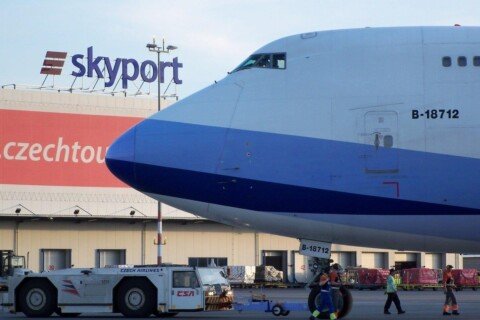The Sultanate of Oman’s SOHAR Port and Freezone, in collaboration with the Federation of Indian Chambers of Commerce and Industry (FICCI) is conducting its second webinar “Food for Thought: Setting up your Food Business in SOHAR to Maximize your Market Reach” on August 31, 2021.
The webinar is aimed at offering the Indian food and beverage sector insights into the GCC food industry, current trends, developments, challenges and opportunities for food trade, processing and logistics in Oman.
The second webinar, part of SOHAR-FICCI five-part webinar series, will highlight SOHAR Port and Freezone’s unrivalled benefit for Indian food businesses. The webinar will also feature SOHAR’s professional handling of food products, flexible warehouse and logistics solutions, competitive utility prices, attractive incentive packages for food processing, and availability of raw materials such as wheat, edible oils and sugar.
The following topics will be covered in the second webinar of the series, by eminent experts.
- SOHAR’s Strategic Advantage
- Food Developments in the GCC and Oman,
- Agribulk and Food Processing Opportunities
- Food Warehousing, Cold Storage and Logistics Opportunities
SOHAR Port and Freezone, one of the fastest growing port and free zones in the world, is home to a variety of clusters, some unique to the region with dedicated agro-berth. Serving as the main entry point for food imports for the Sultanate of Oman, it offers an ideal, close- to-market base to import, process, package and distribute food products to the region and beyond.
India is among Oman’s top trading partners. With exports value of US$ 2,261.81 million, Oman was India’s 35th largest export market for the FY 2019-20. Traditionally, India and Oman have enjoyed a healthy and flourishing food trade of rice and other food items such as vegetables and fruits, meat, coffee, tea and spices, dairy produce and eggs and more.
India was the third largest partner country for the import of food products in value and second largest in volume for Oman in 2018. In 2020, India exported almost 16,000 TEU (twenty- foot equivalent unit) of food products to Oman. The largest containerised volume into Oman with Vegetables and Fruits, made 53% of the containerised volume including Alliaceous vegetables (onions, shallots, leeks and garlic, cauliflowers etc), Potato, Fresh fruits (Mango, Guava, Pomegranate) and other fruits and soft berries (Grapes and Figs). The second largest containerised volume into Oman from India, carried rice (Basmati and non-Basmati).
India also exports a large volume of meat to Oman (mostly frozen), mainly poultry, buffalo, sheep/ goat meat. However, the volume in poultry exports went down significantly from 2019, as Oman natively started the production of large volumes of poultry.
During the COVID-19 pandemic, beyond traditional food items, India has been a reliable source of fruits, vegetables and other essential items for Oman. In 2020, 26 tonnes shipment of Mango was imported from Uttar Pradesh, India within 8 days to Sohar Port.
A direct import from an Indian port to an Oman port takes up to 3 days which is 40% shorter shipping time compared to indirect imports. This further ensures that fruits and vegetables arrive fresh in Oman and are fit for re-export to regional and international ports.
Omar Al Mahrizi, SOHAR Port and Freezone’s Deputy Chief Executive Officer and SOHAR Freezone CEO, highlights, “Oman and India have enjoyed decades of bilateral trading, linked by geography, history, culture and warm and cordial relations. After the success of the first webinar, we are thrilled to present our second webinar to enable opportunities for Indian food and beverage businesses in Oman. With our collaboration with FICCI India, we look forward to share surplus of benefits and high-quality facilities available at SOHAR Port and Freezone, for Indian food businesses seeking to reach the global markets.”
SOHAR Port and Freezone’s location offers functional connectivity and global market access. The container terminal, managed by Hutchinson Ports Sohar, now has a 24×7 customs clearing service, specifically for agricultural products. The Freezone is equipped with temperature-controlled warehousing, logistic service providers and is a vital logistics hub to move goods within the Gulf region. SOHAR offers access to raw materials as well as attractive incentives for downstream food processing and packaging. This potentially includes processing of cereals, bakery products, beverages, edible oils, confectionary, etc. The food packaging industry could benefit from the existing aluminium and plastic producers operating in SOHAR.
To participate in the webinar series, register online before August 31, 2021.







